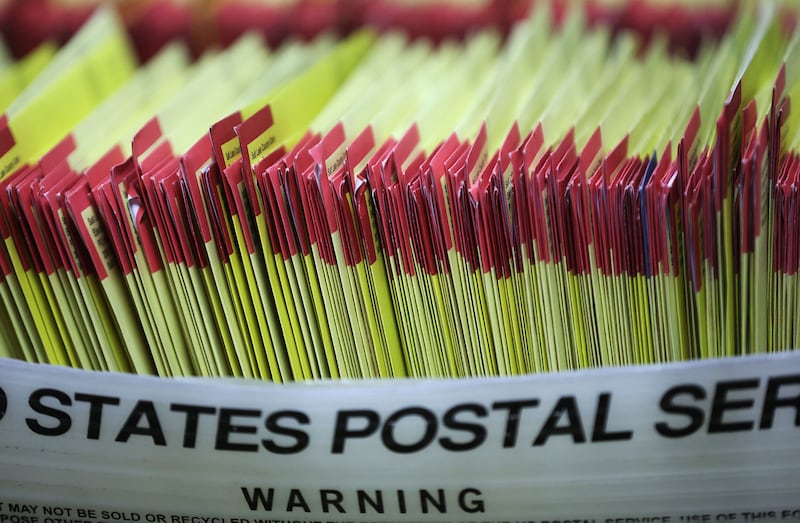Americans never will find a perfect way to vote.
Kenneth Arrow, a Nobel Prize-winning 20th-century economist, proved this with his impossibility theorem, at least when there are three or more candidates in a race.
But that’s probably a bit too technical for this column. Suffice it to say that, in the 21st century, at least, there is no voting system that won’t lead to suspicions by those who have no trust in institutions.
Which may help us understand why so many Utah lawmakers are on the warpath to change the state’s vote-by-mail system, despite no evidence that it has failed.
Maybe it’s human nature.
Go back in time far enough and you will find people who passionately believed that showing up in person at a polling location on Election Day led to irregularities, but I’m getting ahead of myself.
One bill on the Hill this year, HB214, would require ballots to be in a county clerk’s hands by the end of voting on Election Day, rather than just be postmarked before Election Day. You might wonder why this is needed. So would 28 of the state’s 29 county clerks, who oppose the bill. Hardly anyone, it seems, is clamoring for this.
Another, HB92, would require voters to ask for a mail-in ballot, rather than have them receive one as the default, as they have for about a decade now. It would effectively kill the state’s near-universal vote-by-mail system. This one, too, is a head-scratcher.
NPR conducted a survey of mailed-in ballots in states after the 2022 election. In Utah, it found only 0.24% of those ballots were rejected or disqualified, for one reason or another. That was second best among states that provided figures. Only Vermont’s 0.11% was better. But Vermont handled only 196,606 mailed-in ballots. Utah processed and counted 1,006,540 of them.
And how do regular Utahns feel about this?
Just before the 2020 election, the Deseret News and the Hinckley Institute of Politics conducted a poll in which 75% of those who had voted by mail in a previous election said they believed their ballots were counted correctly.
A similar poll in 2022 found 68% saying they planned to vote by mail. In answer to a separate question, 89% said they were confident state and local officials would conduct a fair and accurate election.
So, what gives?
Republicans nationwide believe, with good reason, that they don’t do as well as Democrats with ballots that are sent through the mail or dropped in a dropbox. Some people believe this is why they barely won a razor-thin majority in the House and lost in the Senate in 2022, despite expecting to win majorities in both.
After that election, Politico said Republicans admitted privately that former President Donald Trump’s persistent criticisms of mail-in voting was a factor in this. The publication quoted Republican National Committee chairwoman Ronna McDaniel telling Fox News, “Our voters need to vote early.”
But that doesn’t explain why Utah would want to retreat from mail-in voting. Republicans dominate most national, state and local offices here, and that’s not under threat.
I remember clearly how upset people were in 2000 when the presidential election hung, quite literally, on the hanging chads of punch-card ballots that were printed on too-thick card stock in Florida.
After that, people wanted a more uniform and reliable voting system. Congress passed the Help America Vote Act, which provided funds for states that wanted to install state-of-the-art electronic voting machines. Utah soon bought a bunch of these.
But before long, I was bombarded with phone calls and emails from people convinced these machines were rigged.
The Emery County clerk was so concerned he hired an independent company to examine the machines in his county. That angered the lieutenant governor’s office, which no longer could certify those machines because they had been tampered with by an outside group. It took $40,000 to make things right.
People upset with the machines wanted paper ballots, instead, and to count these by hand — perhaps the least accurate of all voting methods.
Instead, we got paper ballots that are mailed in, then counted by machines that also verify the signatures of voters.
Is it perfect? No. But studies have shown that it increases voter turnout, and Utahns seem to like having the time to research candidates and ballot measures from the comfort of their homes.
Unless, of course, they believe county clerks, and maybe the postal service, are conspiring against them. In that case, no voting method will satisfy them.


